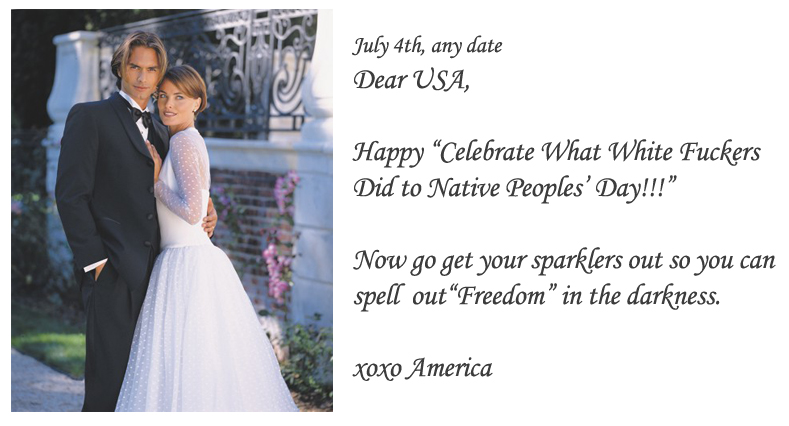The First Americans
The Grand Council Fire of American Indians
December 1, 1927
To the mayor of Chicago:
You tell all white men “America First.” We believe in that. We are the only ones, truly, that are one hundred percent. We therefore ask you, while you are teaching schoolchildren about America First, teach them truth about the First Americans.
“History books teach that Indians were murderers—is it murder to fight in self-defense?”
We do not know if school histories are pro-British, but we do know that they are unjust to the life of our people—the American Indian. They call all white victories battles and all Indian victories massacres. The battle with Custer has been taught to schoolchildren as a fearful massacre on our part. We ask that this, as well as other incidents, be told fairly. If the Custer battle was a massacre, what was Wounded Knee?
History books teach that Indians were murderers—is it murder to fight in self-defense? Indians killed white men because white men took their lands, ruined their hunting grounds, burned their forests, destroyed their buffalo. White men penned our people on reservations, then took away the reservations. White men who rise to protect their property are called patriots—Indians who do the same are called murderers.
“An Indian mother prayed that her boy be a great medicine man rather than a great warrior.”
White men call Indians treacherous—but no mention is made of broken treaties on the part of the white man. White men say that Indians were always fighting. It was only our lack of skill in white man’s warfare that led to our defeat. An Indian mother prayed that her boy be a great medicine man rather than a great warrior. It is true that we had our own small battles, but in the main we were peace loving and home loving.
White men called Indians thieves—and yet we lived in frail skin lodges and needed no locks or iron bars. White men call Indians savages. What is civilization? Its marks are a noble religion and philosophy, original arts, stirring music, rich story and legend. We had these. Then we were not savages, but a civilized race.
“White men called Indians thieves—and yet we lived in frail skin lodges and needed no locks or iron bars.”
We made blankets that were beautiful, that the white man with all his machinery has never been able to duplicate. We made baskets that were beautiful. We wove in beads and colored quills designs that were not just decorative motifs but were the outward expression of our very thoughts. We made pottery—pottery that was useful, and beautiful as well. Why not make schoolchildren acquainted with the beautiful handicrafts in which we were skilled? Put in every school Indian blankets, baskets, pottery.
We sang songs that carried in their melodies all the sounds of nature—the running of waters, the sighing of winds, and the calls of the animals. Teach these to your children that they may come to love nature as we love it.
We had our statesmen—and their oratory has never been equaled. Teach the children some of these speeches of our people, remarkable for their brilliant oratory.
We played games—games that brought good health and sound bodies. Why not put these in your schools? We told stories. Why not teach schoolchildren more of the wholesome proverbs and legends of our people? Tell them how we loved all that was beautiful. That we killed game only for food, not for fun. Indians think white men who kill for fun are murderers.
“Tell how the Indian fought for a country of which he was not a citizen, for a flag to which he had no claim, and for a people that have treated him unjustly.”
Tell your children of the friendly acts of Indians to the white people who first settled here. Tell them of our leaders and heroes and their deeds. Tell them of Indians such as Black Partridge, Shabbona, and others who many times saved the people of Chicago at great danger to themselves. Put in your history books the Indian’s part in the World War. Tell how the Indian fought for a country of which he was not a citizen, for a flag to which he had no claim, and for a people that have treated him unjustly.
The Indian has long been hurt by these unfair books. We ask only that our story be told in fairness. We do not ask you to overlook what we did, but we do ask you to understand it. A true program of America First will give a generous place to the culture and history of the American Indian.
We ask this, Chief, to keep sacred the memory of our people.


